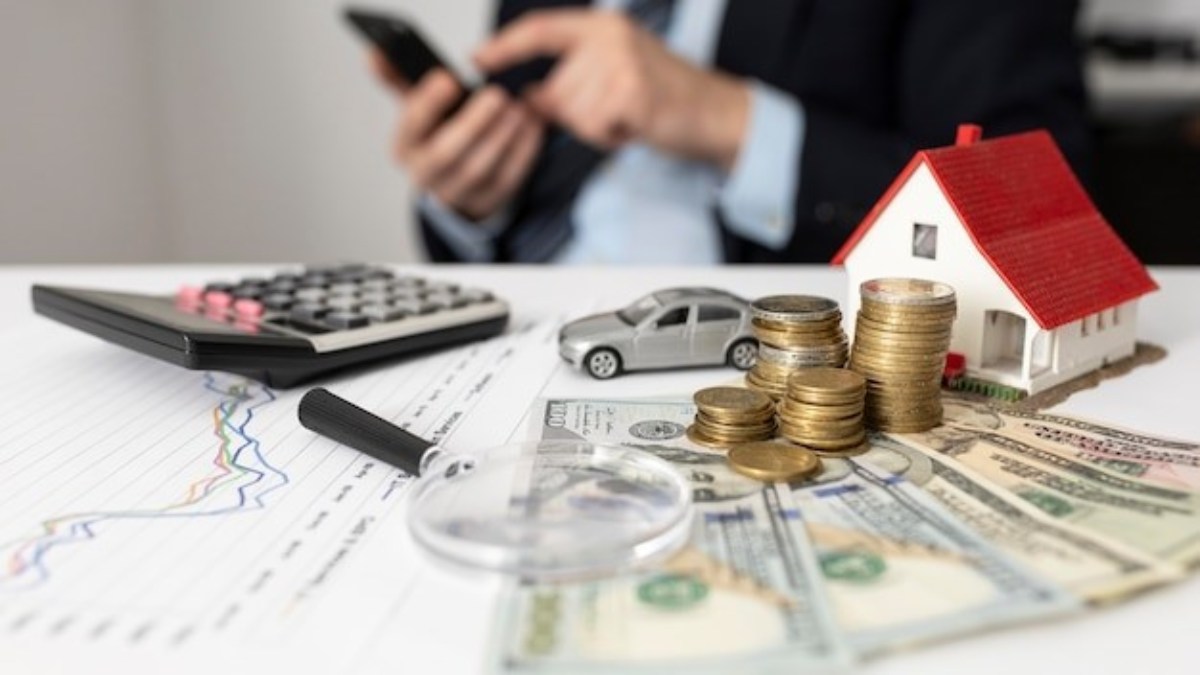When was the last time you sent some money to your savings account? Did you manage to squirrel away the same amount as usual?
If you could only save a fraction of your normal contributions — or skipped saving entirely last month — you wouldn’t be alone. New research completed by New York Life Insurance reveals one-third of adults in the US are socking less away in an emergency fund.
Why? Inflation is to blame. In April, inflation of consumer prices climbed sharply to 8.5%, breaking a 40-year record.
As a result, you’re now spending more to put food on the table and keep the lights on. With everything costing more, you might have to reorganize your budget to afford these everyday expenses, and your savings can easily get lost in the shuffle. Best no deposit savings accounts can be a game-changer, allowing you to grow your savings without a hefty initial investment.
While hitting pause on your savings might help in the short term, it’s not a plan with staying power. Eventually, you’ll run out of savings and fall short of what you need in an emergency. And what then?
If you’re worried about the future, this guide is here to help. It can walk you through your financial options in an emergency and how you can prioritize savings despite inflation.
Table of Contents
What to Do if You’re in the Middle of an Emergency
An emergency isn’t always a far-off “what-if” scenario. It can be a very real problem you’re dealing with today. And with your emergency fund on the low side, it may not help you when you need to see a doctor or take your car in for repairs.
If you’re experiencing an emergency right now, there are a few things you can consider.
1. Cut Back Expenses
If your emergency isn’t time sensitive, look to your budget for some help. By cutting back on the fun or unnecessary stuff in this spending plan, you may be able to free up enough cash to pay for a doctor’s visit or a mechanic’s repair.
- Monthly subscriptions
- Weekend trips
- Streaming services
- Takeout, delivery, dining in, or drinks
- Exercise classes or hobby purchases
- Excess clothes and toiletries
- Gourmet pantry items
- ATM fees
This plan only works if you can safely delay seeing a doctor or repairing your car. It might not be realistic if you need your car urgently to work or are experiencing a severe health concern, nor is it an option if your emergency costs more than you can cut from your budget.
2. Use Credit orShort Term Personal Loans
When waiting isn’t an option, the plastic in your wallet can serve as a reliable backup in an emergency. Credit cards tend to come with cashback rewards that you can leverage for another purchase down the line. But they only work if you have room on your card.
If you’ve already maxed out your credit cards, you can turn to short term personal loans as an alternative. These online loans are typically fixed, small-dollar cash advances available on the Internet with convenient applications you can complete anywhere you get a signal.
Short term personal loans come in all shapes and sizes, so be sure to comparison shop before you commit. If you have very little expendable cash, payday cash advances (or loans due back by your next payday) might be hard to handle. Online loans with monthly payments break up your debt over multiple installments to avoid the burden of repaying everything in one lump sum.
3. Talk to Creditors
You may not have to add to your credit card or online loan debt if you’re willing to talk with your creditors. Whether it’s the mechanic or a cell phone provider, most businesses understand these unprecedented times can make paying bills on time challenging for everyday folks.
Don’t feel the need to go into details about why you can’t pay their bill. Try instead opening a dialogue about how you can work together to create a payment plan that helps both of you. Ask if they’re willing to waive fees or reduce your bill.
If that’s not a possibility, ask about payment plans. A payment plan breaks up your bill much like online loans with monthly payments, except you owe the creditor rather than a financial institution. Just note that you may still pay interest and finance charges on these plans like you would with most short term personal loans.
Bottom Line:
With inflation pushing up the prices on everything, you may not have enough cash to cover these extra costs and still save for a rainy day. The good news is, inflation can’t keep rising forever. Economists forecast it will drop by next year.
If your emergency fund falls short before then, consider budget cuts, online loans with monthly payments, or payment plans with your creditors. These techniques might help you cover an unexpected expense until inflation pops, and you can get back to refilling your emergency fund.

